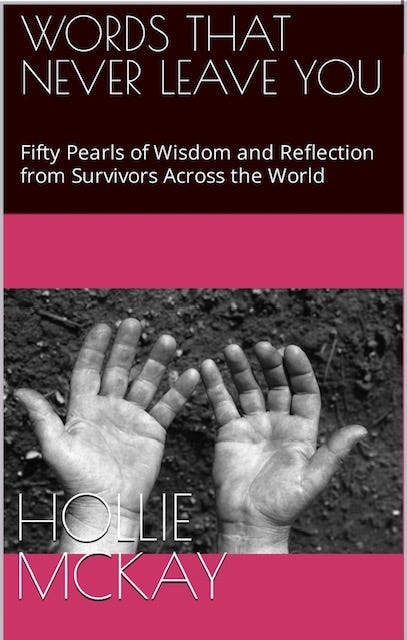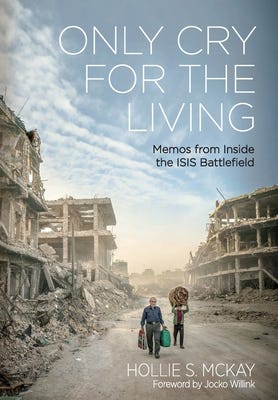Everyone loses in war. Except for these people.
There is a reason they call it the “war business.”
While the human cost is immeasurable when it comes to conflict, a less visible but just as disturbing aspect exists: the business of war, a business that is often necessary for national security and conflict-resolution, but ripe for exploitation.
So who profits from war and bloodletting?
First of all, the Arms Industry. War provides a lucrative market for weapons manufacturers, with governments and militias constantly seeking cutting-edge weaponry. The global arms trade, worth hundreds of billions of dollars annually, fuels a perpetual cycle of violence. Major arms-producing countries, often part of powerful military-industrial complexes, benefit financially from the perpetuation of conflict.
Don’t get me wrong, though. It is an industry as necessary as it is disturbing at times. A robust arms sector helps to ensure our national security, drives technological advancement, and contributes to job creation and economic impact. It is vital for maintaining a nation’s security and sovereignty, serving as a deterrent against potential aggressors and allowing for the adaptation to evolving security threats. Furthermore, the arms industry propels technological innovation, leading to advancements in various fields beyond defense applications. This, in turn, contributes to broader technological progress.
Additionally, the arms industry is a significant source of employment, fostering economic growth through jobs in manufacturing, research and development, engineering, and related sectors. Moreover, a domestic arms industry enhances a nation’s strategic autonomy by reducing dependence on foreign suppliers, ensuring self-sufficiency, and allowing for tailored military solutions. The sector also plays a crucial role in maintaining a credible defense posture, deterring potential adversaries, and ensuring armed forces are adequately equipped and prepared to respond to various security challenges.
Then there is the shadow concept of “Private Military Contractors” (PMCs) which really came to the forefront during Iraq and Afghanistan, with dozens of big companies from Blackwater to Haliburton to DynCorp regularly featuring in the news. These shadowy entities, often operating beyond the scrutiny of international laws, offer services ranging from logistical support to combat operations. PMCs profit from conflict zones by providing cost-effective solutions for governments seeking to minimize the deployment of their own troops.
On the positive side, this can result in financial savings and reduce the number of casualties among the contracting government’s military forces, potentially mitigating the political fallout associated with military interventions. Additionally, PMCs can offer specialized skills and expertise not readily available within conventional military forces, such as logistics, intelligence, and training. Their ability to operate discreetly allows for rapid deployment to conflict zones, providing flexibility in responding to emerging security threats without bureaucratic hurdles.
On the downside, the lack of transparency and accountability in PMC operations can lead to issues such as human rights abuses, war crimes, and a lack of oversight. The profit motive inherent in the private sector may create a conflict of interest, with contractors prioritizing financial gain over broader national or global security concerns. Critics argue that PMCs may not undergo the same rigorous training and discipline as regular military personnel, potentially resulting in unprofessional conduct and violations of international laws of war. The potential for mission creep, where the scope of a contract expands beyond its original purpose, and the hostility PMCs may face in conflict zones further underline the need for clear regulations and oversight to ensure responsible and ethical conduct in private military contracting.
And then there is the chilling notion of Natural Resource Exploitation. Take a look at your smartphone. There is a good chance that the cobalt used to make it emanated from the Congo, or another resource-rich but terribly poor place hamstrung by persistent war and bloodletting.
War-torn regions are frequently rich in natural resources, making them a magnet for those seeking to exploit the chaos. Corporations involved in extracting oil, minerals, and other valuable commodities often establish clandestine relationships with warring factions to secure access to these resources. The pillaging of natural wealth during conflicts not only fuels violence but also deepens economic disparities, perpetuating instability long after the guns fall silent.
Wall Street and those in the financial sector also stand to make good $ with the onset and steady state of war. Investors with a keen eye on geopolitical events may strategically allocate their assets to capitalize on market fluctuations triggered by conflict. The defense industry, in particular, witnesses spikes in stock prices during times of heightened tension or actual conflict. Speculating on war-related events through arms manufacturers or other defense-related stocks has become a niche yet profitable strategy for some investors.
Bankers can also be in for a boost. Wars come with significant costs, and nation-states typically fund them not from their reserves but by borrowing money through the sale of U.S. Treasury bonds. Banks, in turn, benefit from the interest earned on these bonds. Primary dealers of U.S. bonds, which are financial institutions, also make profits through the sale of these bonds. The duration and expense of a war directly impact the profits of these banks, making perpetual wars, such as the 20-year-long U.S. war in Afghanistan, a source of continuous financial gain.
The often unregulated humanitarian aid and reconstruction arena also stands to make a buck, with the NGO world begging for money of which much goes into overhead and five-star hotels far from the heart of the crisis. While humanitarian aid organizations play a crucial role in alleviating suffering during and after conflicts, the business of aid has also faced scrutiny. Some argue that humanitarian efforts can perpetuate conflict by providing resources to armed groups or corrupt governments. Additionally, the reconstruction industry that emerges post-conflict is often rife with corruption and profiteering, as contracts for rebuilding infrastructure and nations are awarded to well-connected entities.
I should probably add last but not least the media stands to gain as well, but only if its a story that pulls the attention of the American public. While we hear routinely about the devastation in Ukraine and Gaza, there are many other gut-wrenching conflicts that simmer without attention as they are perceived not to be major moneymakers or have as much impact on Washington’s decison-making. Darfur? Burma? DRC? Anyone?

In the complex world of war, various interests come together to take advantage of the chaos and suffering in conflicted nations. Recognizing these beneficiaries is vital for grasping the overall dynamics of conflict and devising strategies to encourage peace, accountability, and justice. What I do know is that I have never seen a war that was worth it. We are all touched and hurt by war, however far away we think the battle zone may be. Battles rise and fade, but their ramifications never die out. Every single war is a tragedy that cannot be undone. I think a lot about the frustration of all this writing, whether it even made a mild dent in bettering a single life. Perhaps only the history books will tell.
PLEASE CONSIDER A PAID SUBSCRIPTION TO THIS SUBSTACK TO HELP KEEP INDEPENDENT, AGENDA-FREE WRITING AND JOURNALISM ALIVE. THANK YOU SO MUCH FOR YOUR SUPPORT.
For speaking queries please contact meta@metaspeakers.org
For ghostwriting, personalized mentoring or other writing/work-related queries please contact hollie@holliemckay.com
Follow me on Instagram and Twitter for more updates
Pre-Order The Dictator’s Wife (out June 10)
Click Here for Pre-Order from my publisher DAP Publications (please support small business!)
Click Here for Pre-Order from Barnes & Noble
Click Here for Pre-Order from Amazon
Click Here for Pre-Order from Target
HOLLIE’S BOOKS (please leave a review)
** Short read of meaningful lessons gleaned from the ordinary forced to become extraordinary
Order your copy of “Afghanistan: The End of the US Footprint and the Rise of the Taliban Rule” due out this fall.
For those interested in learning more about the aftermath of war, please pick up a copy of my book “Only Cry for the Living: Memos from Inside the ISIS Battlefield.”
If you want to support small businesses:
And also now available in Australia






